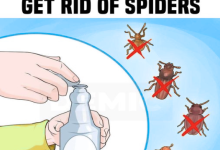An endless list of the same housework to-dos costs you time, money, and sanity. Here are some you can just skip.
1. Washing Your Hair Every Day

It may sound counterintuitive, but if you shampoo too often, you will actually make your hair oilier. Washing strips hair of natural oils, so your scalp produces more, and then you have to wash again. Stick to two or three times a week, says dermatologist Tsippora Shainhouse, MD. Using a gentle, sulfate-free shampoo and conditioner will keep your scalp and hair from drying out too much.
2. Using A top Sheet On Your Bed

Save time making your bed every morning by skipping the tangle-prone top sheet. Many Europeans sleep directly under a quilt or a duvet with a cover, as do about 30 percent of Americans. Just be sure to make time every week to wash any bedding that touches your body.
3. Rinsing Dishes

Unless you’re waiting days to run the dishwasher, rinsing wastes time and water. Simply scrape off any leftover food and put dishes right into the dishwasher, urge the experts at Consumer Reports.
4. Searching For Lost Socks

You may swear that gremlins take your socks from the laundry, but in fact, a single sock can slip into the gap between the washing machine door seal and the drum and get pumped away with the water. Prevent this from happening by washing sock pairs together in a wash bag.
5. Buying Home Storage Items

You can easily spend hundreds of dollars on special bins, bags, boxes, and other storage containers. But some of the best ways to keep your possessions neat and organized come from repurposing simple things you already own. Organizing guru Marie Kondo is a fan of using shoeboxes as drawer dividers, for example.
6. Opening Curtains Wide Every Morning

Letting the sunshine in is a lovely way to greet the day, but if you’ll be leaving the house and not returning until after dark, all those rays can fade your furniture and make your air conditioner work harder. South- and west-facing rooms are especially sun-prone, so try leaving those curtains or shades are drawn. Also, consider running the air conditioner only when you’re home or setting it at a higher temperature when you go out. Every 2°F warmer will save 10 percent on your cooling costs.
7. Peeling Vegetables

Unless you’re preparing winter squash, celery root, or some other food with a tough outer coating, there’s no reason to waste precious before-dinner time peeling vegetables, reports thekitchn.com. That goes for foods you may have been peeling all your life, such as carrots, cucumbers, potatoes, and turnips. You’ll save time and gain flavor and healthy fiber.
8. Sweeping Up After You Track In Dirt

In many countries, it’s customary to take off your shoes as soon as you come inside. Adopting a no-shoes policy is an easy way to keep your house cleaner and your family healthier. About 85 percent of all the dirt in our homes is tracked in on shoes, say the experts at Family Handyman. And that’s not the worst of it.
According to a study at the University of Houston, more than 26 percent of shoes carry Clostridioides difficile bacteria, responsible for many cases of stomach distress, into the house. Another small study at the University of Arizona showed that 96 percent of shoes track in fecal matter. A simple solution is to keep a mat or shoe rack just inside your front door.
9. Thawing Over Frozen Food

According to the FDA, your refrigerator temperature should be set at 40°F (4°C) and your freezer temperature should be 0°F (−18°C). Setting the temps any lower won’t make your food last longer and will push up your electric bill. If your appliance doesn’t have a built-in thermometer, buy one at a hardware store. Also, to keep things cool, spread the food around in the fridge and freezer so air can flow properly. And stop standing there with the door open you’re letting warm air in!
10. Throwing Away Leftovers

Speaking of the freezer, anything fresh or cooked can be frozen, according to the food pros at Taste of Home. That includes fresh vegetables as well as cooked eggs and pasta. Given that Americans typically toss about 40 percent of the food we buy, you should see a payoff quickly. Don’t throw away those peels and scraps, either. They can go right into a compost bin or pile instead. Make one at home, or find out whether your city or town has a central drop-off location.







